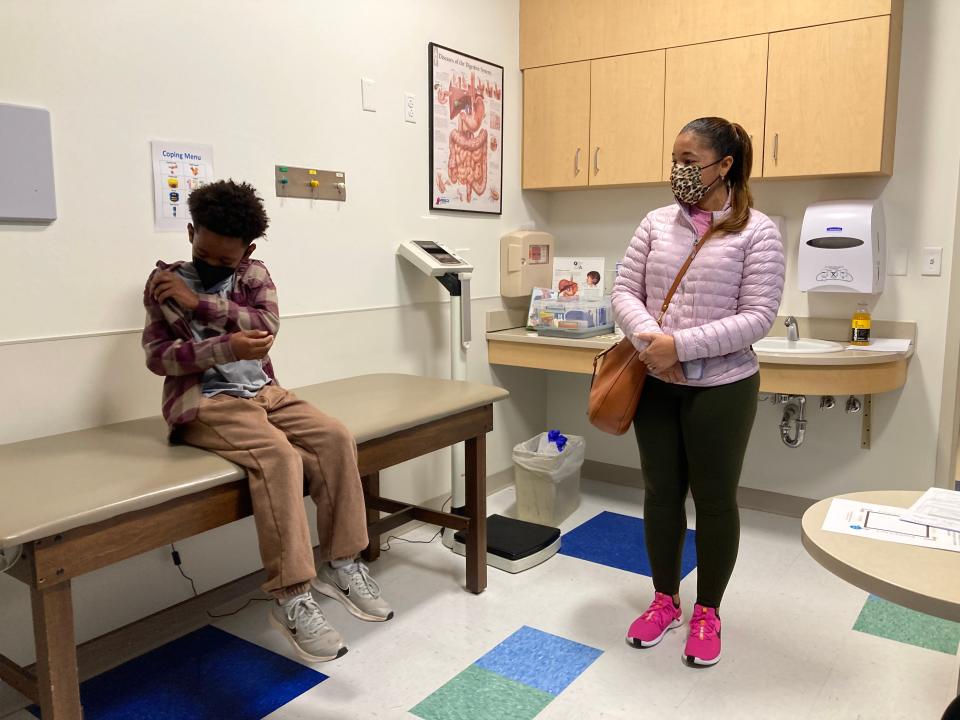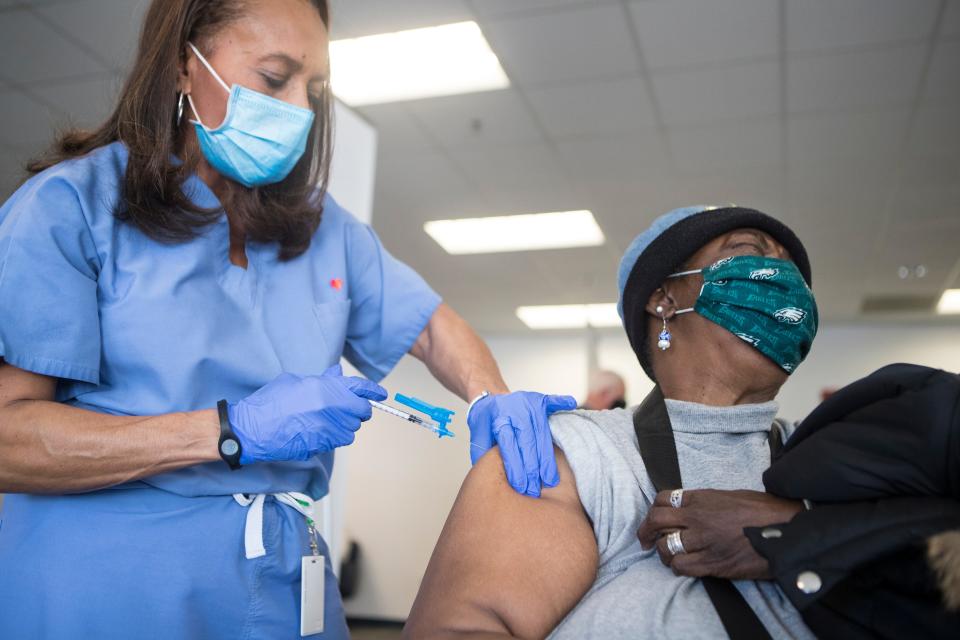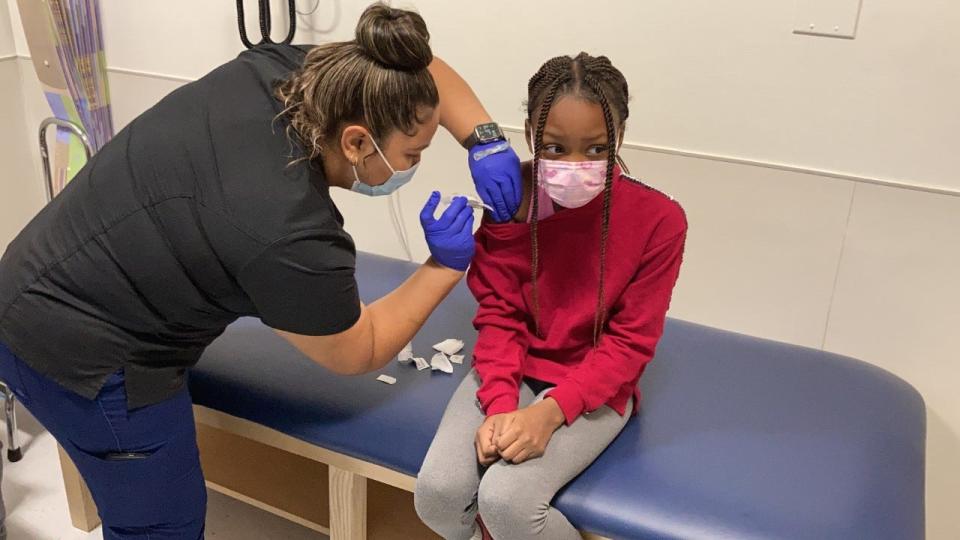Summer isn’t over yet and neither is COVID-19. What to know about spike in cases, boosters
A rise in COVID-19 cases and hospitalizations is not the kind of summer wave anyone was hoping to catch.
But it’s a reality that is becoming only more prominent as people hear of friends hunkering down after positive tests, and both President Joe Biden and U.S. Sen. Tom Carper, D-Del., tested positive for COVID-19 on Thursday.
This latest spike is largely driven by the BA.5 subvariant of omicron, which is now making up about 80% of new cases, according to the Centers for Disease Control and Prevention.
In Delaware’s most recent monthly report, the Division of Public Health reported a rise that matches national trends. As of Thursday, the average percentage of tests coming back positive over a seven-day period was 19.2%.
The state acknowledged that the number of COVID-19 cases in the community is higher than that reported percentage because at-home tests are not included.
VACCINES:Delaware's youngest residents are now eligible for COVID-19 vaccines. How to get them
While DPH emphasized that the state is not seeing the same impact on hospitalizations and deaths as in previous surges before more of the population was vaccinated, the CDC reported that all three counties have at least a medium or high level of spread right now.
The state also marked more than 3,000 deaths in July, according to DPH. Almost one-third of those who died from complications due to COVID-19 were long-term care residents.

HISTORIC LOSS:What Delaware can learn about grief and hope amid another tragic milestone for COVID-19
Public health officials agree that the biggest tool protecting people from serious illness or death right now is vaccines and keeping up to date with boosters. In the First State, just over 70% of the population is fully vaccinated, according to CDC data, which includes Delawareans who are vaccinated in other states.
As people enjoy the rest of the summer by the pool or on the beach, or families get ready for back to school with end-of-summer sports camps, what should you know about the current public health risks? Here's the latest advice from local and federal public health officials.
How to safely enjoy the rest of summer
First, the good news: Spending time outside is still one of the safest things we can do, according to the Division of Public Health.
That means your outdoor barbecues, cornhole competitions, days on the beach and bonfires – they’re all still safer options than cramming into crowded indoor spaces.
However, if you do have plans to be indoors or around a lot of people, DPH is suggesting people wear masks, distance as much as possible and keep up a good hand-washing regimen. And if anyone starts to feel sick or knows they were exposed to someone with COVID-19, they should get tested and stay away from others in the meantime.
Basically, you can still have a fun summer – it’s just wise to be aware of your surroundings and keep up those healthy routines that will prevent you and others from getting sick. Beyond these familiar steps, DPH said the ultimate shield from serious illness is staying up to date on vaccines and boosters.
Boosters – when to get them
Ever since the latest BA.5 subvariant of omicron arrived, doubts have swirled about whether people should wait for updated vaccines that might be more effective against this strain.
Yet Delaware’s public health officials, the CDC and White House advisers are all saying the same thing: Don’t wait.
Of the test results coming back to Delaware labs in June, about one-third of them contained the original strain of COVID-19 that the current vaccines are designed to specifically fight against, according to DPH.
However, health officials also stress that the vaccines will still provide some protection no matter the variant that someone contracts.

These vaccines might not help as much with keeping people from getting the virus, but they are “highly effective at preventing more severe consequences, including serious illness, hospitalization and death against all variants,” DPH spokesperson Timothy Turane said in a recent press release.
This is why DPH is pushing for people to get their boosters when eligible.
When a person’s immunity wanes after their initial vaccine doses, the boosters help increase antibody levels so the body can keep protecting against serious illness. Also, if people get vaccines and boosters now, that doesn’t necessarily mean they will be ineligible to get the updated versions when they become available in the fall.
BOOSTER UPDATES:FDA panel approves reformulating COVID boosters to fight 'risk of major outbreak' this fall
Here’s who is eligible for a booster:
Ages 5+ if it has been 5 months since your second dose of Pfizer.
Ages 18+ if it has been 5 months since your second dose of Moderna.
Ages 18+ if it has been 2 months since your initial dose of Johnson & Johnson.
Those who qualify for an “additional/third” dose of Pfizer or Moderna because they have certain immunocompromising conditions.
People can also get a second booster, or fourth dose, four months after receiving their initial booster if they are over the age of 50 or immunocompromised.
Gearing up for school, sports
As July melts into August, it’s also the season of late-summer sports camps and other gatherings as students get ready for the fall.
When parents and guardians send their kids off to camps, DPH reminds them to continue following the measures to keep themselves and their students protected, primarily keeping updated on vaccines.
“We want all children to be safe and the best way to do that is by adding the COVID vaccine to the child’s immunization record,” Turane said in a statement.

Now, more than 74% of all Delawareans ages five and up are vaccinated, according to CDC data. Delaware public health officials have said convincing parents of the safety of COVID-19 vaccinations for children has been a significant hurdle.
With the latest approvals, children ages 6 months and up can get the Moderna or Pfizer vaccines.
Vaccination rates may also affect what school looks like as fall comes around. Most school districts won't make decisions about COVID-19 policies and back-to-school strategies until closer to August, and the Delaware Department of Education spokesperson Alison May said there is no blanket guidance at this point.
SCHOOLS:As students experience more trauma, why have mental health services lagged in Delaware schools
However, May said the department will continue to follow DPH guidance and "adapt to conditions as needed." At the end of the school year last spring, face masks were no longer required by the state of Delaware in K-12 schools, on school buses or in child care facilities.
When asked about back-to-school, DPH referred to CDC guidance for K-12 facilities, including encouraging vaccinations, staying home when sick, optimizing ventilation in schools and frequent hand washing.
Emily Lytle covers Sussex County from the inland towns to the beaches, with a focus on health-related issues. Got a story she should tell? Contact her at elytle@delmarvanow.com or 302-332-0370. Follow her on Twitter at @emily3lytle.
This article originally appeared on Delaware News Journal: COVID-19 cases spike in Delaware: What to know about summer increase

